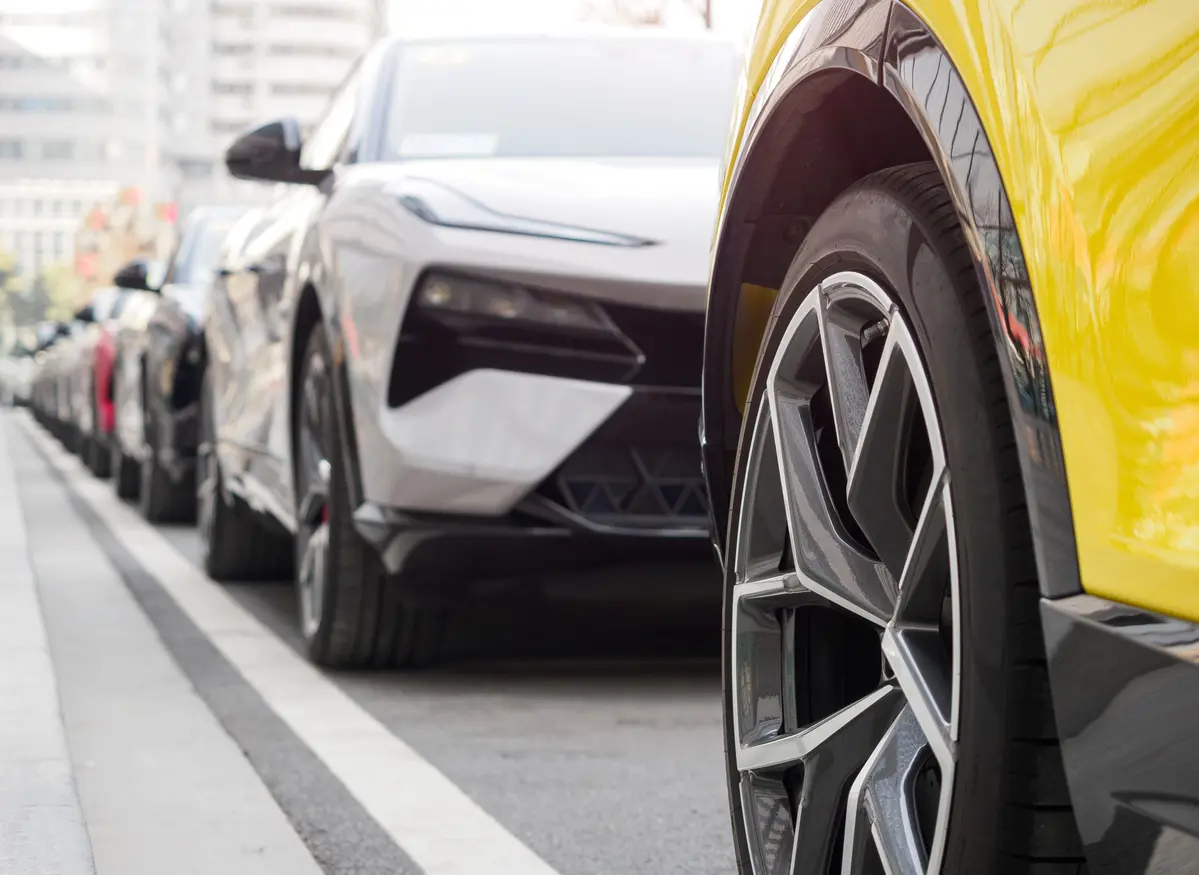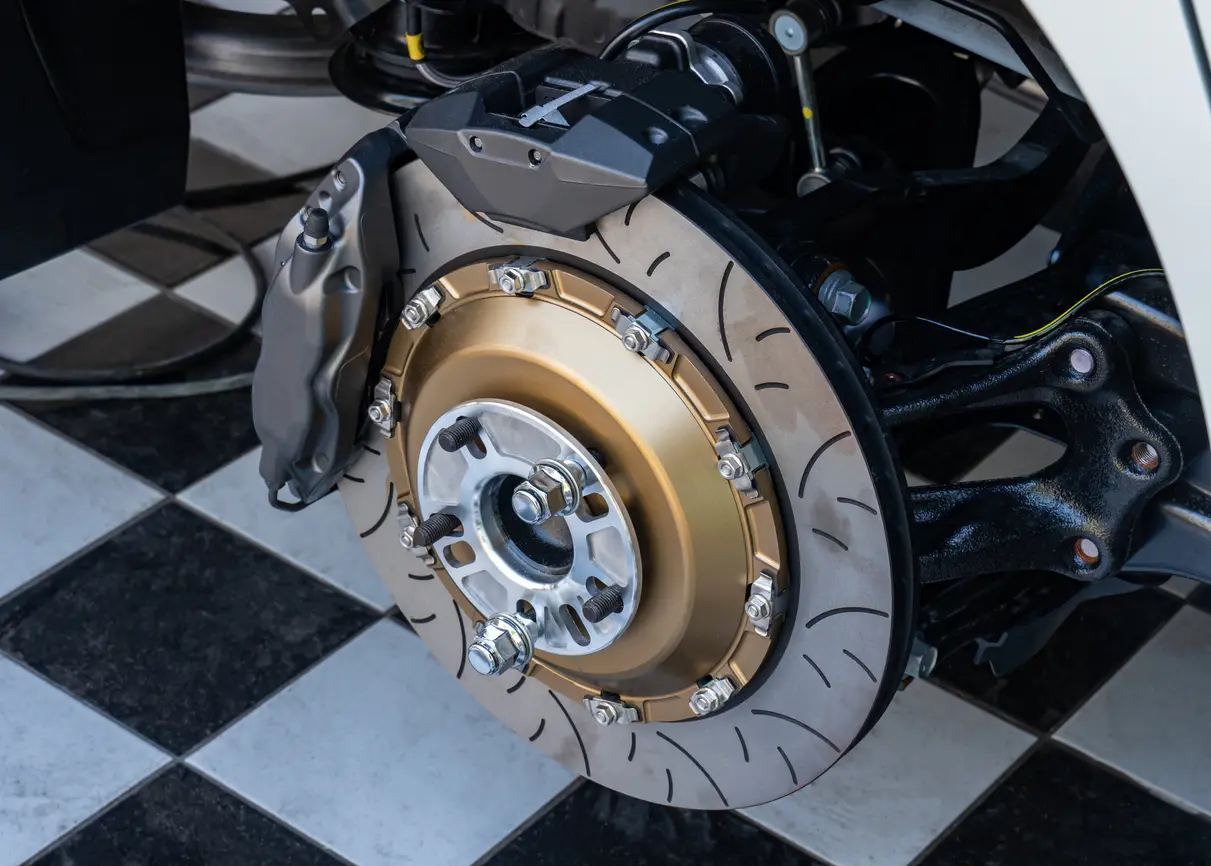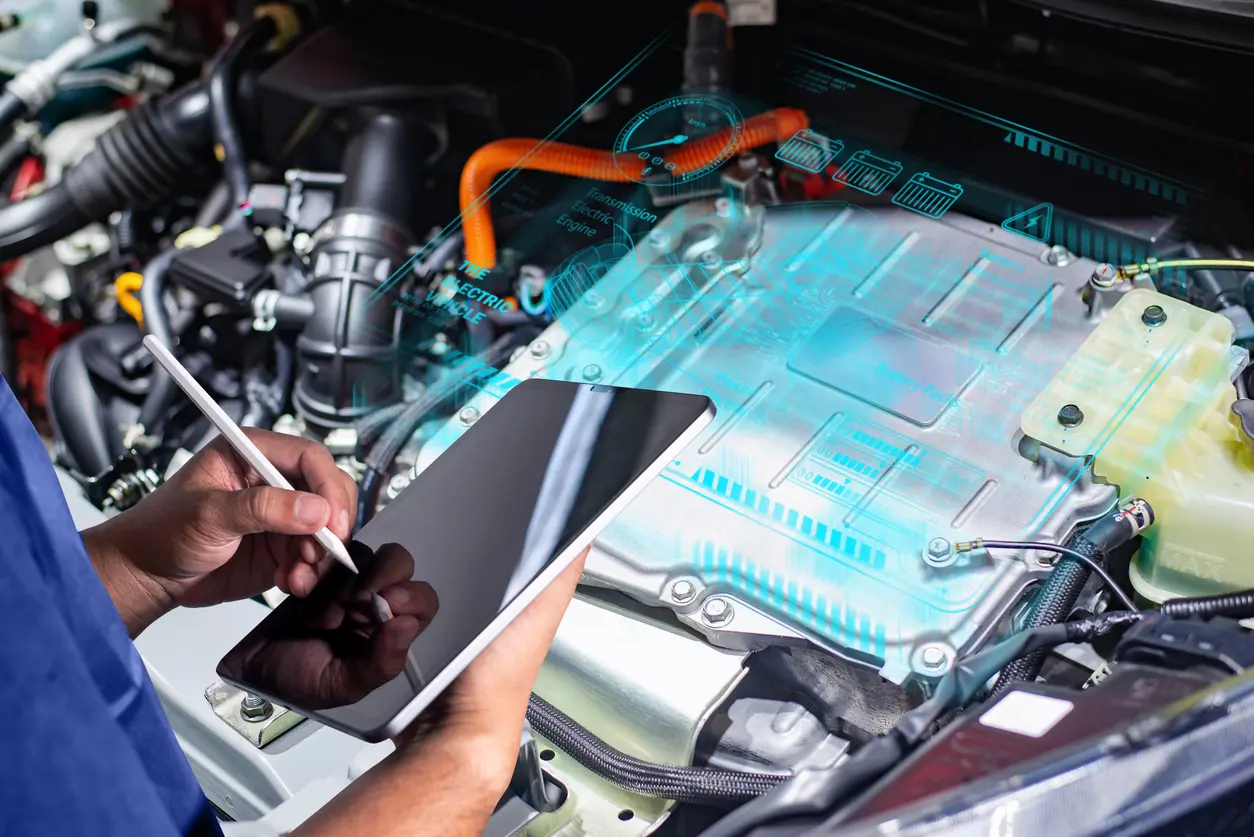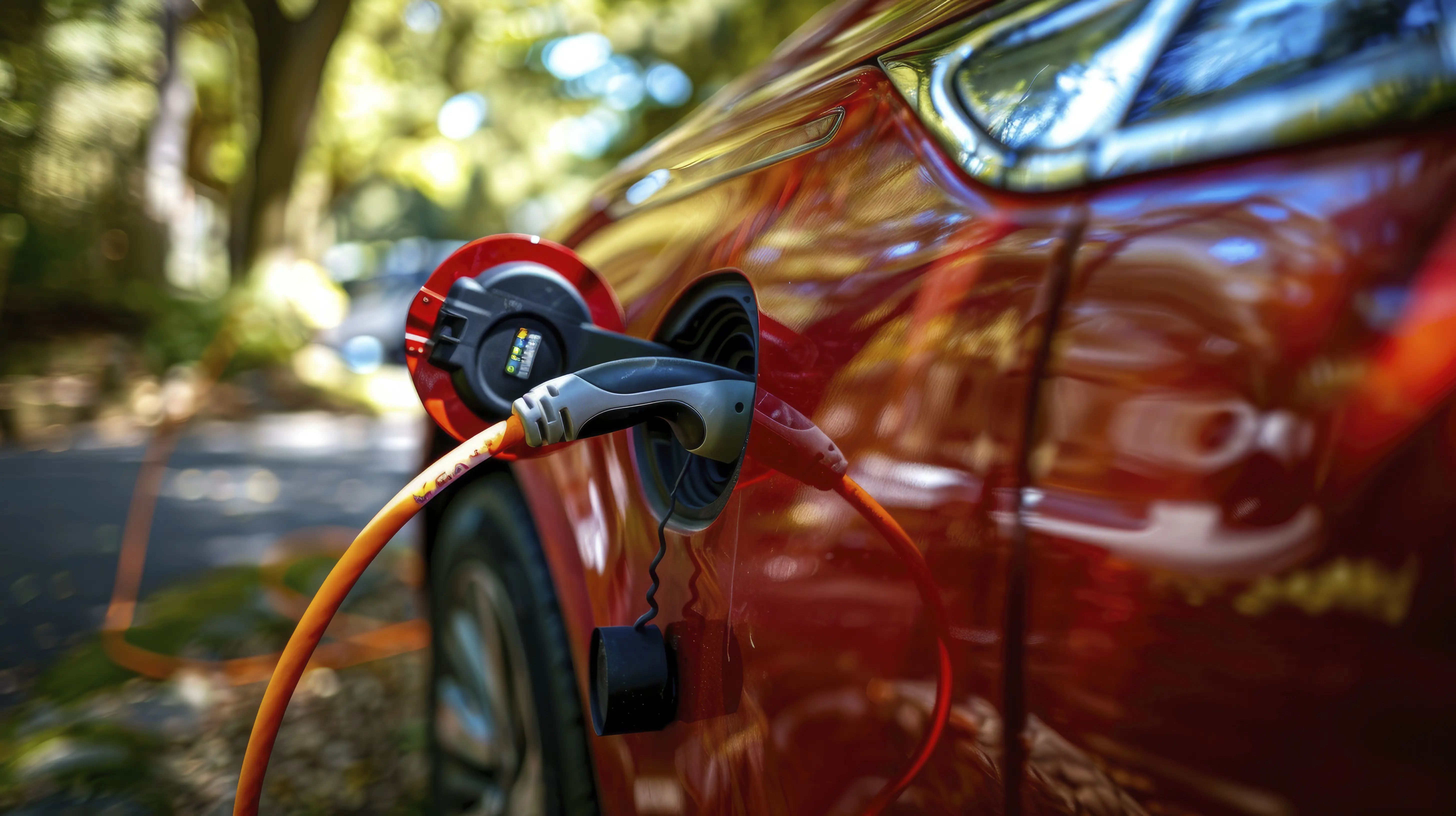EV Maintenance Intervals
Below you’ll find a breakdown of when you should have certain parts of your EV serviced. These recommendations apply specifically to fully electric vehicles (BEVs). Hybrids (HEVs) and plug-in hybrids (PHEVs) will require a mix of both regular and EV maintenance because they still have an ICE.
The specific make and model of your EV can also influence when it’ll need servicing. Refer to your owner’s manual for further guidance on when to maintain your vehicle.
Tires & Wheels
Tires are one of the few parts of an EV that need similar if not slightly more attention than regular ICE vehicles. This is because the weight of the EV battery and instant torque can wear the tires out faster than on other vehicles.
Book a tire rotation and wheel alignment for your EV every six months (or every 10,000 to 13,000 km). After about 50,000 km, you’ll need a tire change.
No matter what vehicle you drive, check the tire pressure and tire wear monthly (especially before a long trip).
Fluids
Unlike ICE vehicles, EVs don’t need oil changes. They do, however, require occasional checks and top-ups of three other fluids.
The most frequent fluid you’ll need in an EV is windshield washer fluid. Like in a regular car, this should be checked every two months. EV coolant usually only needs replacing after five years and brake fluid can be replaced every two years. (Some manufacturers, like Tesla, advise drivers to never replace the coolant.)
Battery
EV batteries are built to outlast the rest of the car and should require very little throughout their service life. On average, these batteries will last about 15 years.
Cabin Air Filter
EVs don’t have engine air filters, but the cabin air filter should be replaced every 12 to 18 months. Depending on where you live, you may need to change the filter more frequently to keep dust and debris out of your vehicle’s cabin.
Engine/Motor Components
The engine and electrical components of your EV require very little maintenance. These parts are typically only assessed if you suspect an issue with them. To make sure everything looks right, you can have a professional look at your EV’s engine every one or two years.
HVAC
EV air conditioning maintenance should be done every two to six years. This timing heavily depends on your EV model.
Talk to a Professional
EV maintenance requires specialized tools that most DIYers won’t have in their garage. Since EVs are made with complex components and run at a high voltage, it’s important only an experienced professional works on your EV. Otherwise, you risk damaging your car and/or injuring yourself.
Although it’s not required as often, EV maintenance is just as important as regular ICE vehicle maintenance. Failing to have your EV serviced properly can lead to costly repairs and potentially compromise your safety on the road. Pay attention to how your vehicle operates and trust a professional mechanic to handle any concerns.
For more information about EV maintenance, chat with a knowledgeable technician at a NexDrive service centre.
Other Resources

Why do electric car tires wear out so fast?
EV tires experience increased tread wear because of instant torque and unsprung weight. Learn why electric vehicles lead to worn-out tires and how to extend the lifespan of EV tires with proper maintenance.

Why regenerative braking is bad for your brake pads
Regenerative braking improves energy efficiency, but can cause brake pad issues because of reduced mechanical brake use. Learn how to maintain your brake system and prevent costly repairs in this article.

Does an EV need regular general maintenance?
Although EVs require less maintenance than gas-powered vehicles, they still need regular care. Learn about battery health, brake maintenance, and more here.
